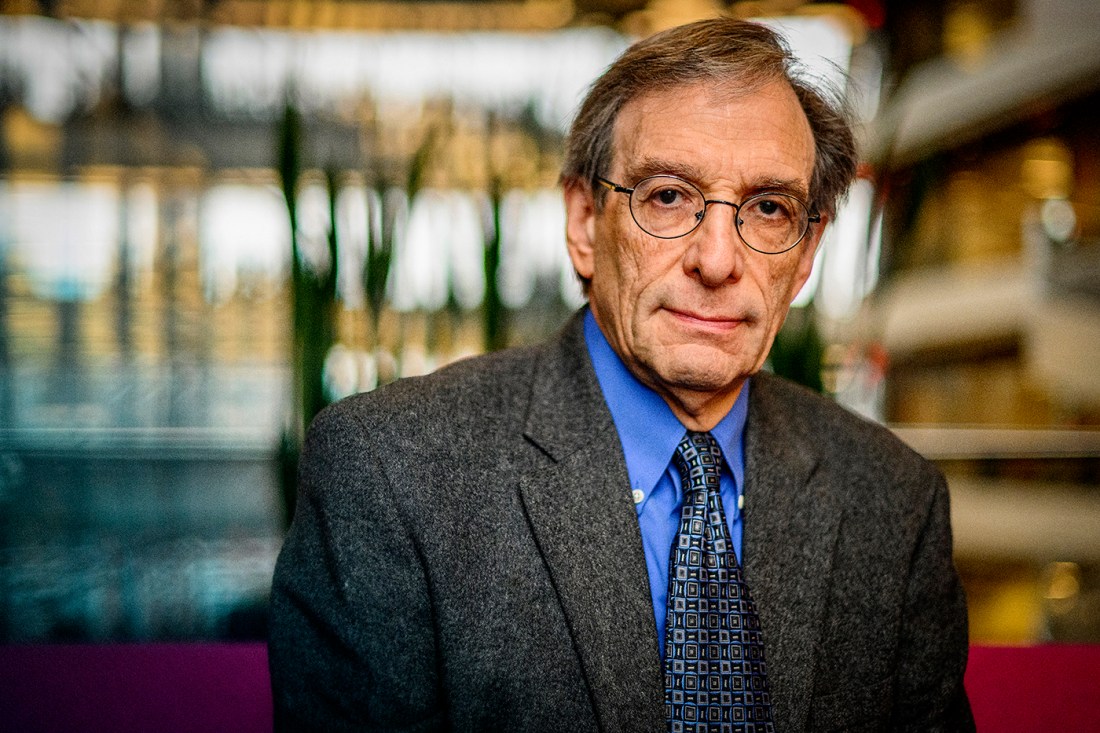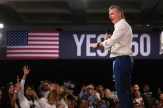What was the motive behind the murder of UnitedHealthcare’s CEO? It appears to be a ‘symbolic takedown,’ criminologist says
“Given his background … it does seem like he’s trying to get even with a system that hurts many people,” says Northeastern University criminologist James Alan Fox.

After police charged Luigi Mangione in connection with the shooting death of UnitedHealthcare’s CEO, details of the 26-year-old suspect’s life became the center of intense scrutiny and speculation over social media.
Mangione was charged on Monday in the fatal shooting of Brian Thompson, the chief executive of UnitedHealthcare.
A valedictorian of an all-boys preparatory school and graduate of an Ivy League school, Mangione may not fit the profile of someone who would commit murder on the streets of Manhattan. But Northeastern University criminologist James Alan Fox says that there are many motivating factors that can lead someone to commit such violence.
One phrase echoing across the reporting is what the police are referring to as a “symbolic takedown” — that is, an attempt to highlight perceived injustices attributed to larger entities, such as an insurance company or the industry it is part of, by targeting an individual closely linked to them.
“It’s the idea that Thompson represents — and these aren’t my words — all of the corrupt CEOs who take advantage of the little guy, the downtrodden,” Fox says. “We see this pretty commonly in these sorts of crimes.”
While it’s still unclear if Mangione had a personal grievance with UnitedHealthcare, it is clear, based on his writings obtained by police, that he harbored an ideological disdain for the health care industry, Fox says.
“Given his background — his wealthy family, his Ivy League education — it does seem like he’s trying to get even with a system that hurts many people,” he says.

Fox says “there are a lot of cases of people who grow up affluent, only to go off on their own and reject all the benefits that they had as unfair to the rest of society.”
The shooting spawned a separate conversation online that highlighted a long-simmering public hatred for insurance companies, one that saw a significant number of social media users express outright support for Thompson’s killing — and, therefore, the shooter himself. An internal police report, citing Mangione’s writings, noted that “he likely views himself as a hero of sorts who has finally decided to act upon such injustices.”
Mangione was spotted in the back of a McDonald’s in Altoona, Pennsylvania, on Monday, leading to his arrest.
On the valorization of the shooter on social media, Fox said: “Of course it is awful, but it’s not new. There have been lots of cases of criminals who have been cast as heroes in the minds of many people.”
“It’s not new that someone who believes they are striking back against power is admired and cheered on by others who also feel that they are,” Fox says.
One notable example is Charles Manson, the 1960s cult leader whose followers carried out a series of gruesome murders — among them, the infamous Tate-LaBianca murders. Fox also cites Ted Kaczynski, the so-called Unabomber, who some perceive as a hero for resisting the technologization of modern society.
“There have been a lot of murders that have happened in this country, and a lot of murders of wealthy and powerful individuals,” Fox says. “This one in particular has struck a nerve because of the symbolism. Thompson represented an industry for which many Americans are angry. This case has become larger than death, and it has nothing to do with this individual, and it really has not that much to do with the victim. It has to do with the generalized anger that Americans have toward insurance companies.”
“Now that he is in custody, I’m hoping that the focus on him as an individual is toned down,” Fox says. “While he was on the loose, it was fine. We wanted to know who he was, and the publicity of his photograph led to his capture. But now that he is in custody, he’s no hero.”







